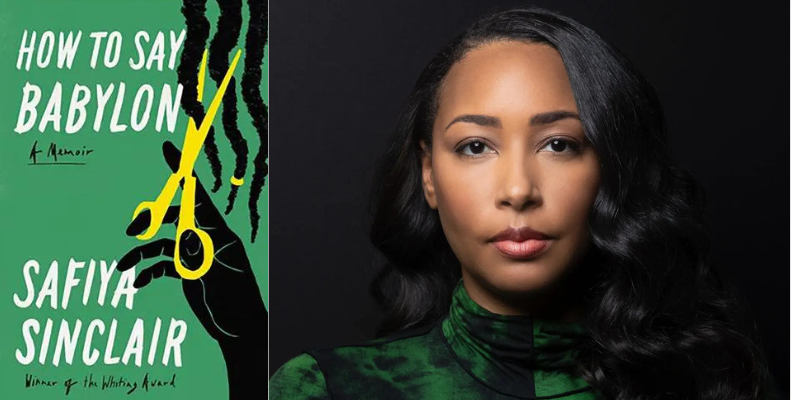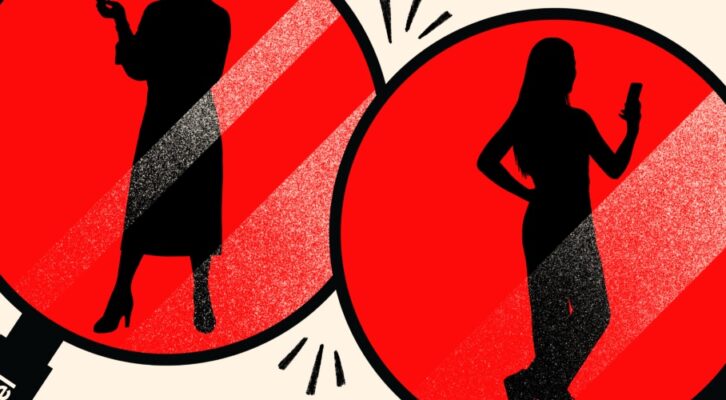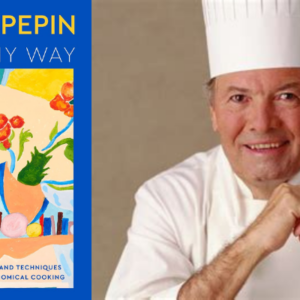Safiya Sinclair on Growing Up Rastafari
In Conversation with Maris Kreizman on The Maris Review Podcast
This week on The Maris Review, Safiya Sinclair joins Maris Kreizman to discuss How to Say Babylon, out now from 37Ink.
Subscribe and download the episode, wherever you get your podcasts.
*
from the episode:
Maris Kreizman: I’m going to start with me being the perfect kind of American idiot who has seen many college dorms with many a Bob Marley poster on them. And so I was really surprised in reading your memoir, I’m gonna quote you to you, by the 90s you say, the Rastafari, though still shunned and outcast by their own people, became the living mascots and main cultural export of Jamaican tourism.
That seems like a really lonely place to be.
Safiya Sinclair: Yes, it was. I kind of knew when I was thinking about writing the book, I’d already been to college in the US and had been asked all of the questions that you could imagine somebody from being asked. And I realized just how misunderstood Rastafari culture and history was, globally, even though it holds this large space in sort of the global imagination, right?
But in Jamaica, most people don’t know that the Rastafari are historically a persecuted minority. That most Rastafari were, from the beginning of the movement in the early 1930s, kicked out of their homes. They were shunned by their families, they were targeted by the government, by the police, we even had a prime minister in the 60s that sent the army after Rastafari and said, bring me all Rastas dead and alive.
The historical persecution of Rastafari in Jamaica continued this way when my siblings and I were born. We were the only Rasta children in school. We were among the first Rastafari children to even integrate public schools in Jamaica. Rastafari children were not allowed before then.
And so wherever we went, we were an oddity, even in Jamaica. I even had Jamaican friends who don’t know much of anything about the Rastafari movement. And so growing up we were like the only ones at school, the only ones at the beach, the only Rasta children wherever we went. So this made for a very unique upbringing and one that people might not have realized that that’s what it would be like growing up Rastafari in Jamaica. And so that was the root of where I began with the book.
MK: Yeah, and another thing you write a bit later in the book, which is something that you articulated later in your life, but giving the background of how your family grew up, you say every Rastaman was the godhead in his household. And so, your father made the rules. He was the authority.
SS: He was the authority. Yeah, he was the grand authority, which I think is probably another surprising thing for most people when they think about Rastafari. I think they only know one representation of it. I think when most people think of Rastafari, they think of the men, they probably think of one particular man. Most people don’t really know what a Rasta woman’s life is like, or a young girl who’s growing up in Rastafari. The fact that there is no sort of scripture or written book or guidebook of tenets that is uniform across all Rasta brethren, or, Rasta families.
And most of the time it really is just the head of the household, the Rasta man, the father figure who kind of divines: what is good? What’s bad? Who is holy? Who is heathen? My father held this large space in our household and in our family’s lives. He was bigger than the sun and took up as much of that room and decided when the sun shone on you and when it did not.
He was a disciplinarian and authoritarian, and he adhered to one of the stricter sects of Rastafari which dictated what we ate, who we talked to, how my sisters and my mother and I dressed. There were lots of rules for women in particular, which is not a big surprise when you think about a lot of religions and a lot of particularly fundamental branches of religions.
And so Rastafari was no different. It was interesting for the women who were mostly on scene and not really given consideration and to hold space in the Rastafari movement. So,, yeah, the women, my sisters and I, we had to cover our arms and our knees. The idea was that we were supposed to be pure and humble and obedient and that we had to express that outwardly by throwing off any trappings of vanity or Babylon, which is the Rastafari’s term for anything they believe is of the wicked Western world. Anything that’s corrupt or immoral or potentially bad, they call Babylon.
MK: It’s so interesting to me that this obsession with purity is fundamentally the same across almost every religion you can possibly imagine. And to think about how the British ruled Jamaica until the 60s, and so most of the country is Christian. And still, reproductive rights are very limited there, to say the least. And there is a culture of victim blaming. It seems like a difficult place to be a young woman.
SS: it was. It was because when you’re told that your silence is the highest virtue a woman could have, being pliant and not having any opinions and also that this idea that my body was more susceptible to corruption because it was quote unquote unclean. Because women menstruate, there’s a lot of Rasta brethren who believe that makes them unclean. There’s even a sect that has their women sequester themselves on their periods and cannot touch anything in the kitchen because they’re believed to be unclean.
And so, from an early age, hearing this idea of unclean and having these ideas of something being different about my body in a way that was wrong, that was also outside of my control, obsessed me for a long time. It marked the way that I thought about myself and wanting to be pure, wanting to be clean for my father. Not knowing of course that it was already a fixed immorality because of my womanhood. I was always someone who was questioning everything so this voicelessness was a struggle for me pretty early on.
And then when I started to grow older and I saw the roads diverging between me and my brother. You know, when I turned nine years old, my father was like, okay, you’ll never wear pants again. Suddenly all these rules were kind of shifting and my brother and I were so close and I was like, wait, wait, wait, hold on. Why is this happening? I just began to question all of that.
*
Recommended Reading:
The Ferguson Report: An Erasure by Nicole Sealey • Chain Gang All Stars by Nana Kwame Adjei-Brenyah
__________________________________
Safiya Sinclair was born and raised in Montego Bay, Jamaica. She is the author of the poetry collection Cannibal, winner of a Whiting Writers’ Award, the American Academy of Arts and Letters’ Metcalf Award in Literature, the OCM Bocas Prize for Caribbean Poetry, and the Prairie Schooner Book Prize in Poetry.




















